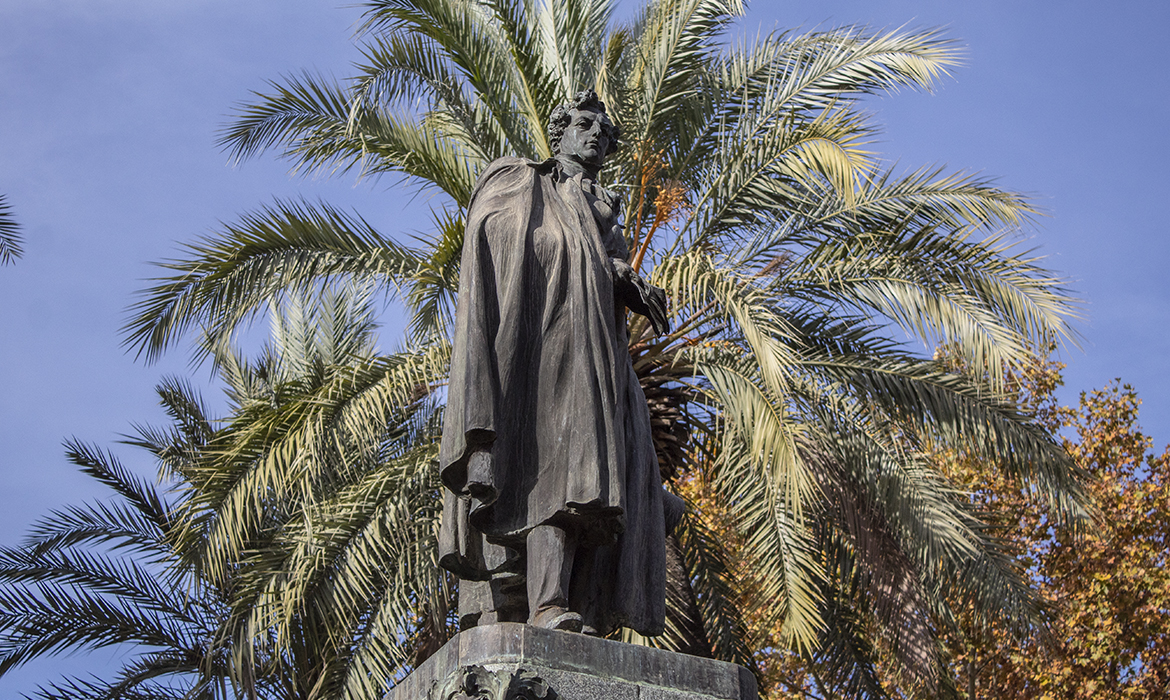Duque de Rivas
|
In the gardens which are named after him, next to the Paseo de la Victoria, stands the monument to this famous Cordoban, Ángel de Saavedra, who was born on 10th March 1791, but emigrated with his family to Barcelona in 1800. He took up a determined political stance from early on, fighting against the French invaders and becoming a member of the Cortes (Parliament) of Cádiz. In 1821, he was Member of Parliament for Cordoba and in 1823 became one of the Secretaries of the House. His activities in the ultra-radical wing of the Liberal party made him unpopular with the Absolutists, who exiled him after they came to power in 1823, until the death of Fernando VII. In 1834, after his brother’s death, he inherited the title of Duke of Rivas and from then on, his political career made a complete U-turn. During the Regency of María Cristina, and now as a Conservative, he was named President of the Cabinet. In 1843 he returned to politics, this time as a member of the Moderate Party for Cordoba and Vice President of the Upper Chamber. During his years as a diplomat, he was Spanish Ambassador in Naples and Paris. In 1852, he became a member of the Royal Academy of History and in 1854 member of the Royal Academy of San Fernando. This ardent Cordoban politician and literary enthusiast died on 22nd June 1865, at 74 years of age.
His best known works are El faro de Malta (the Maltese Lighthouse) and Don Álvaro o la Fuerza del Sino (Don Alvaro, or the Power of Fate). As a Romantic writer, he was such an important figure in the world of literature that in 1862 he was appointed President of the Royal Academy of Language.
